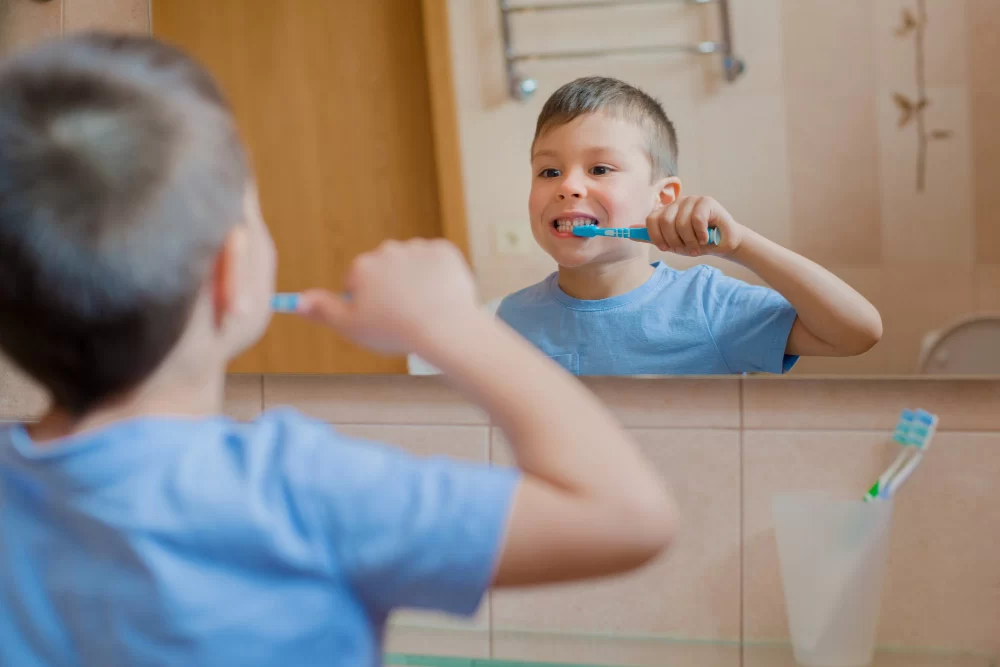
The Importance of Regular Brushing and Flossing for Kids
When it comes to taking care of our children's health, we often think about their diet, exercise, and overall well-being. However, one of the most important aspects of health that can often be overlooked is dental care. Teaching kids the importance of regular brushing and flossing is crucial for establishing lifelong habits that will lead to healthier teeth and gums. In this article, we’ll explore why oral hygiene matters for children, how to develop good habits, and the impact of regular brushing and flossing on your child's long-term dental health.
Why Is Oral Hygiene So Important for Kids?
As adults, we often understand the significance of brushing and flossing, but why is it especially important for children? Good oral hygiene not only helps children maintain a clean and fresh mouth, but it also protects against various oral health issues, including cavities, gum disease, and bad breath. By teaching kids to brush and floss regularly from a young age, we lay the foundation for a lifetime of healthy dental habits.
Children are especially susceptible to cavities because their teeth are still developing, and they often consume sugary foods and drinks. Without regular brushing, plaque—a sticky film of bacteria—begins to form on the teeth. This plaque feeds on sugars and produces acids that can erode the tooth enamel, leading to cavities and other dental issues.
The Role of Brushing in Children's Oral Health
Brushing is the first line of defense when it comes to keeping your child's teeth clean and free from harmful plaque. For young children, brushing at least twice a day, typically in the morning and before bed, helps ensure that food particles and plaque are removed. Using fluoride toothpaste helps strengthen tooth enamel, making it more resistant to decay.
It's also important to teach kids how to brush properly. Gently brush all surfaces of each tooth, including the outer, inner, and chewing surfaces, for at least two minutes. The American Dental Association (ADA) recommends using a soft-bristled toothbrush that is appropriately sized for a child’s mouth. For kids aged 3-6, a small pea-sized amount of toothpaste should be used, and for children over the age of 6, an amount equivalent to a small bead of toothpaste is sufficient.
The Importance of Flossing for Kids
While brushing is effective at removing surface plaque, it often misses the spaces between the teeth. This is where flossing becomes critical. Flossing helps remove food particles and plaque between the teeth and under the gumline, where toothbrushes cannot reach. Without flossing, plaque can accumulate in these tight spaces, leading to tooth decay and gum disease.
Flossing should begin as soon as your child has two teeth that touch. It can be challenging for younger children to floss on their own, so it's essential for parents to assist. As children grow older and develop better fine motor skills, they can start flossing on their own, ideally by the age of 8-10. Until then, parents should help floss their child’s teeth, making sure that the floss reaches beneath the gumline without snapping or hurting the gums.
Creating Healthy Oral Hygiene Habits Early
The earlier you start teaching your child about the importance of brushing and flossing, the easier it will be to establish these habits as part of their daily routine. For many kids, brushing and flossing can feel like a chore, but making it fun and part of their daily routine can help change that perception. Here are some tips to encourage good dental hygiene:
- Make brushing and flossing a family activity. Children are more likely to follow suit if they see their parents practicing good oral hygiene.
- Choose fun toothbrushes and toothpaste flavors. Many children are more excited to brush their teeth if they have a toothbrush with their favorite character or a fun flavor of toothpaste.
- Use positive reinforcement. Praise your child for brushing and flossing regularly. Small rewards like stickers or extra playtime can motivate children to keep up with their oral hygiene.
- Set a routine. Kids thrive on consistency. Brushing and flossing should happen at the same time every day to make it a habit.
Understanding the Consequences of Poor Oral Hygiene
If children neglect brushing and flossing, they can develop a variety of dental problems, some of which may require costly and painful treatments later in life. Here are some potential consequences of poor oral hygiene:
- Cavities: The most common dental issue in children, cavities form when plaque and bacteria erode the tooth enamel. Cavities can lead to pain, tooth sensitivity, and eventually tooth loss if not treated.
- Gum Disease: Inadequate brushing and flossing can lead to gingivitis, the earliest stage of gum disease. Gingivitis causes gum redness, swelling, and bleeding. If left untreated, it can progress to more severe forms of gum disease, which can affect a child’s overall health.
- Bad Breath: Poor oral hygiene is a primary cause of bad breath. Without proper brushing and flossing, bacteria build up in the mouth, leading to unpleasant odors.
- Tooth Sensitivity: Neglecting oral hygiene can lead to weakened tooth enamel, causing increased sensitivity to hot, cold, or sweet foods.
Visit the Dentist Regularly
While regular brushing and flossing are crucial, it's also important to take your child for regular dental checkups. The American Academy of Pediatric Dentistry (AAPD) recommends that children visit a dentist by their first birthday or when their first tooth appears. These checkups will help ensure that your child's teeth are developing properly, and the dentist can catch any early signs of dental issues before they become more serious.
Regular dentist visits also allow your child to become familiar with the dental office, helping to reduce anxiety and fear of dental appointments as they grow older. Your dentist can provide personalized advice on your child’s oral hygiene routine and may even recommend fluoride treatments or sealants to further protect their teeth.







 Contemporary Dental Implant Centre4.0 (13 review)
Contemporary Dental Implant Centre4.0 (13 review) Little Grins Dental4.0 (79 review)
Little Grins Dental4.0 (79 review) UI Health Mile Square Health Center - Primary and Immediate Care3.0 (13 review)
UI Health Mile Square Health Center - Primary and Immediate Care3.0 (13 review) Stoneridge Dental4.0 (384 review)
Stoneridge Dental4.0 (384 review) Sandra L. Vargas, DMD3.0 (8 review)
Sandra L. Vargas, DMD3.0 (8 review) Dr. Melanie Williamson, DMD5.0 (5 review)
Dr. Melanie Williamson, DMD5.0 (5 review) The Importance of Oral Health Education During Pregnancy for a Healthy Pregnancy
The Importance of Oral Health Education During Pregnancy for a Healthy Pregnancy Best Tips for Brushing Your Teeth Properly for Healthy Gums: Essential Techniques for Oral Health
Best Tips for Brushing Your Teeth Properly for Healthy Gums: Essential Techniques for Oral Health Why Skipping Dental Checkups Can Lead to Bigger Oral Health Problems
Why Skipping Dental Checkups Can Lead to Bigger Oral Health Problems Advantages of Porcelain Dental Restorations
Advantages of Porcelain Dental Restorations How Can Diabetes Cause Tooth and Gum Problems? Preventing and Managing Oral Health Issues
How Can Diabetes Cause Tooth and Gum Problems? Preventing and Managing Oral Health Issues Healthy Habits for Promoting Good Oral Health and Hygiene: Tips for a Healthy Smile
Healthy Habits for Promoting Good Oral Health and Hygiene: Tips for a Healthy Smile